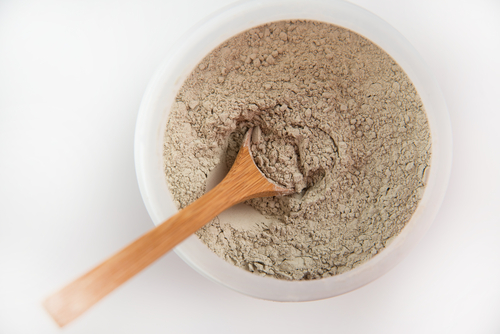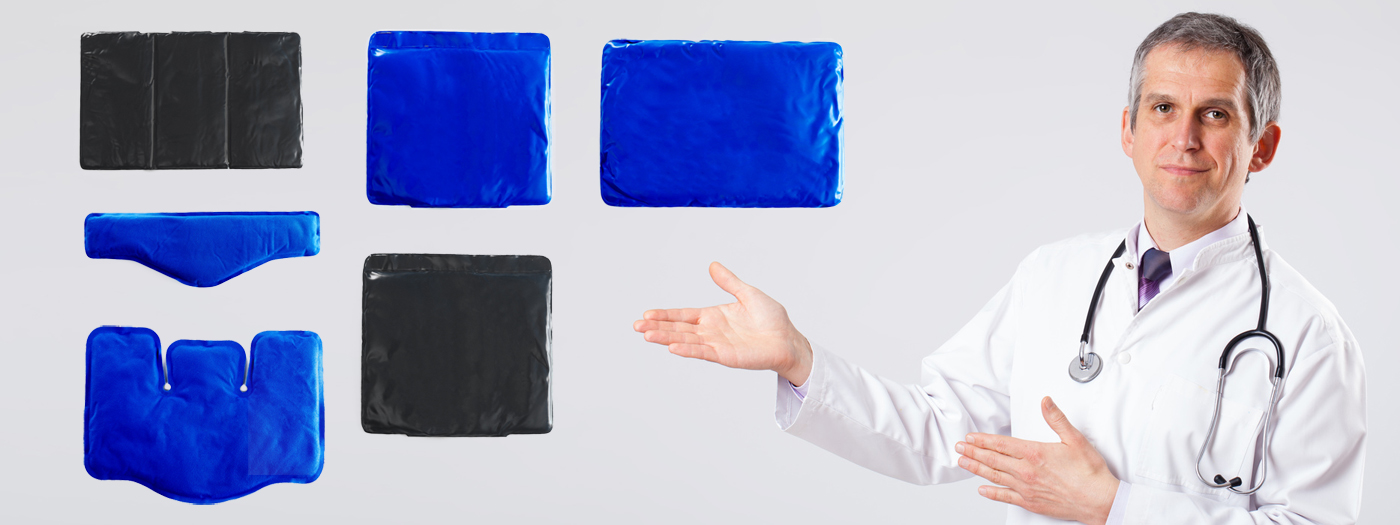10 Bentonite Clay – Benefits and Uses
-
Used on the Skin to Help Heal Poison Ivy, Dermatitis and Wounds
When combined with water and left to dry on the skin as a clay mask, the clay is able to bind to bacteria and toxins living on the surface of the skin and within pores to extract these from the pores. This helps to reduce the outbreak of blemishes, alleviate redness, and also to fight allergic reactions from irritating lotions or face washes, and even helps heal poison ivy.
Thanks to the clay’s special ability to act as an antibiotic treatment when applied topically to the skin, the clay can help to calm skin infections, like contact dermatitis, and speed up healing time of wounds, even when prescription antibiotics were not able to help solve the problem.
Topical application of bentonite clay has even been shown to heal Buruli ulcer, which is a “flesh-eating” infection resulting from Mycobacterium ulcerans bacteria generally seen in third-world countries.
Some people have reported using bentonite clay as a soaking liquid to remove toxins on the skin.
-
Supports Healthy Digestion
By removing toxins, digestive-distress causing chemicals and heavy metals from the gut, bentonite clay helps to promote digestion. Research has also shown that, in animals, bentonite clay can bind to particular toxins like “aflatoxins” that are common in the standard diet, found usually on improperly stored food products. When left unattended, an influx of aflatoxins can contribute to liver damage and potentially even the onset of certain cancers.
In a study using cows, scientists found that bentonite clay molecules bound to bovine rotavirus and bovine coronavirus, two major viruses that contribute to gastroenteritis (referred to
as stomach flu in people). Variations of both of these viruses can also be present in human beings.
Thanks to its ability to neutralize bacteria in the gut and kill viruses, bentonite clay helps to alleviate many digestive problems. Some people use bentonite clay as relief for nausea and vomiting by pregnant women, as a safe way to remedy constipation, and to help with IBS.
It’s possible that the reason people find relief in these situations has to do with the way bentonite protects the lining of your intestines from letting toxins through, which would otherwise contribute to leaky gut. So far, this effect has only been observed in animals, but may also apply in human subjects.
Bentonite clay may benefit your pets as well. It is safe for pet consumption within your own home and can alleviate pet’s nausea and vomiting in the same way. You can add bentonite clay to your pet’s water to help reduce symptoms like vomiting. Mix one-fourth cup or less of the clay into their water until it dissolves; they should not taste anything or even notice that it’s there, but should feel better pretty quickly.
-
May Promote Weight Loss

As part of a healthy diet containing plenty of alkaline foods, natural detox drinks and probiotics/prebiotics, bentonite clay was found to contribute to weight loss in healthy men over a 21-day period. The participants, overall, also saw improvement in total cholesterol.
Because of the uncontrolled nature of this study, it is not possible to determine how influential bentonite clay, as a single element, was on the observed weight loss, so these results should be approached with caution. To date, no controlled, human studies exist to reflect this benefit.
However, a 2016 trial in rats tested the impact of bentonite clay on weight loss and found that the supplement was correlated with weight loss as well as decreased cholesterol.
-
Helps with Thyroid Function
In rats and mice, bentonite clay helps to absorb certain thyroid hormones , resulting in the alleviation of hyperthyroidism. This result suggests bentonite might potentially help people keep thyroid levels down, although the test has not been duplicated in humans as of yet.
-
Stops Growth of Two Cancer Cell Lines in a Lab
A lab study conducted in 2016 discovered that bentonite clay stopped the growth of cancer cell line U251, a human cancer cell found in a central nervous cancer called glioblastoma. However, another cell line was grown larger when exposed to the substance. The researchers explained that the cell formations and swelling of bentonite clay is the reason for this, and that it could potentially be effective against specific types of cancers (like glioblastomas), but not others.
Another lab experiment observed bentonite clay caused cell death of Caco-2 cells, a colorectal cancer line. In this study, the clay exhibited a large amount of oxidative stress upon just the cancer cells without damaging the DNA.
-
Boosts Immunity by Killing Harmful Bacteria and Viruses
Bentonite clay was also found to be effective at killing harmful bacteria. In a study published by the Journal of Antimicrobial Chemotherapy, “results indicate that specific mineral products have intrinsic, heat-stable antibacterial properties, which could provide an inexpensive treatment against numerous human bacterial infections.”
More research is still needed on the topic, but results of studies so far appear to be promising in terms of how the clay can be used as a treatment for these gut-related illnesses. On top of killing these types of infections and viruses, bentonite clay benefits your immune system by keeping the gut wall strong.
Much of the immune system actually lives inside of the gut microbiome, and when the gut wall is compromised, toxins are better able to leach into the bloodstream and cause serious problems. By protecting the gut wall and decreasing the amount of pesticides, toxins, bacteria and chemicals that could potentially enter the blood, the body is better able to protect itself.
-
May Support Respiratory Health
One type of virus that, at least in a lab, finds its match in bentonite clay is human adenovirus. While these viruses are not generally lethal, they do cause respiratory infections that can be particularly dangerous to infants or those with compromised immune systems. No currently accepted treatment method exists for these viral infections, but it’s possible bentonite clay could be a candidate for more research on the subject.
Bentonite clay is also likely able to successfully treat paraquat poisoning in humans. Paraquat is a toxic herbicide and is not available easily in the U.S. However, if it is ingested or breathed in, it can cause many a disease called Paraquat lung. Like Fuller’s earth, bentonite seems to be a potentially powerful agent against the damage paraquat can cause.
-
Could Improve the Health of Teeth and Gums
The mouth is one of the most susceptible areas of the body when it comes to harmful outside “invaders” taking over, like bacteria and toxins.
Bentonite clay binds to unhealthy substances in the mouth, such as around the teeth and on the tongue and gums, and helps to remove them before you swallow them and become sick. Because of Bentonite’s antibacterial properties, it has been used in natural toothpastes and even mixed with water and used as a daily rinse.
-
Removes Fluoride from Drinking Water
Bentonite clay has been researched as an effective way to remove some of the dangerous fluoride often found in drinking water, which is linked to serious diseases such as diabetes, thyroid dysfunction and brain damage.
When combined with magnesium, the clay has been shown to benefit the purity of tap water, which leads to some promising possibilities for using it in the future as a widespread cost-effective water purification method.
-
Useful As a Baby Powder Alternative
Bentonite clay can be applied to any area on the skin of babies that is irritated, red or needs soothing in the same way that traditional powders are used. Plus, it is very gentle and naturally cleansing.
Apply a small amount of the clay directly to the skin and allow it to sit for several minutes before wiping/rinsing it.


